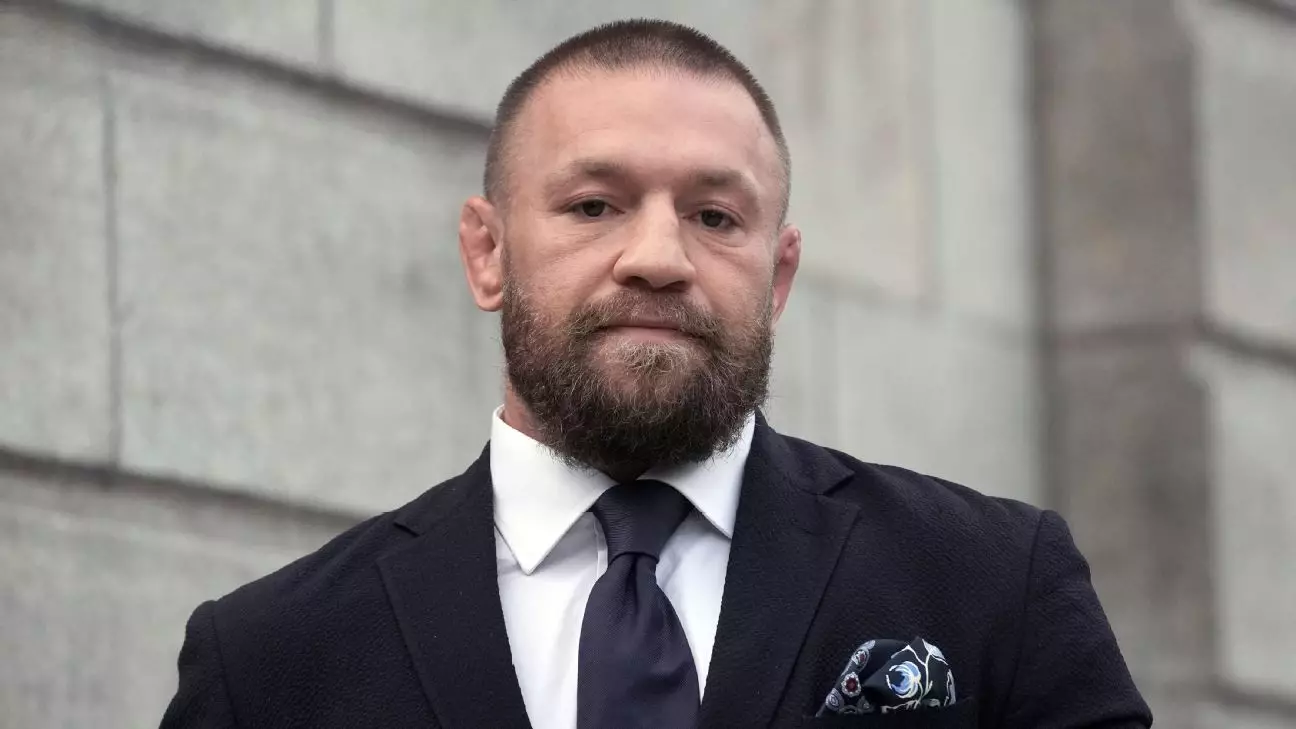Conor McGregor, the notorious MMA fighter and former UFC champion, has found himself embroiled in a serious legal battle in a Dublin court, facing allegations of sexual assault from 2018. The civil case brought against him by a woman, whose name remains undisclosed, claims that McGregor sexually assaulted her during an encounter after a work Christmas party. The allegation involves a separate individual, James Lawrence, accused of similar misconduct. As the trial unfolds, McGregor’s vehement denial of the charges is setting the stage for a contentious courtroom drama.
On the sixth day of the trial, McGregor took the witness stand for the first time, adamantly asserting that the allegations against him were “full of lies.” His testimony included a detailed account of the encounter between himself and the alleged victim, claiming it was consensual. McGregor’s defense focuses on discrediting the woman’s claims, particularly her assertion that he exerted physical dominance over her by placing her in an armlock. According to McGregor, the idea that he would physically force someone into a sexual encounter is unfounded and completely misleading.
The legal proceedings have revealed troubling details, including the assertion that the woman sustained visible bruising after the incident, which her lawyer claims was due to McGregor allegedly pressing forcefully on her wrist. Furthermore, she reported to the court that she was so concerned about her physical state that a doctor directed her to have photographs taken to document her symptoms after visiting a sexual assault treatment unit. These claims add weight to the complexity of the case, presenting a challenging narrative for the defense.
An alarming dimension of the case is the mention of substance use prior to the alleged assault. The woman’s lawyer has indicated that she was on antidepressants and possibly under the influence of other substances at the time of the event. This aspect raises critical questions regarding consent and the capacity to give informed agreement to engage in sexual activity. It invites reflections on the responsibility of individuals in positions of power and the implications of using alcohol or drugs to influence interactions.
McGregor’s notoriety extends beyond the octagon; it encompasses a history of controversial behavior, which adds layers to the public’s perception of him during the trial. As a figure often idolized within the sports community, he has also faced scrutiny for previous legal issues and accusations. This trial reignites discussions about celebrity culture, power dynamics, and accountability, especially in the realm of sexual misconduct.
As the case progresses, the jury—composed of eight women and four men—will have the challenging task of untangling the conflicting narratives presented. The trial is anticipated to last for two weeks, marking a critical period for both McGregor and the accuser. With the stakes high for both parties, the courtroom will likely remain a focal point, capturing public attention as more evidence and testimony unfold in this disturbing narrative. The outcome may significantly affect public sentiment toward McGregor and further discussions about consent and accountability in society.

